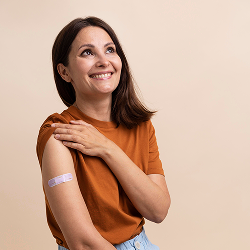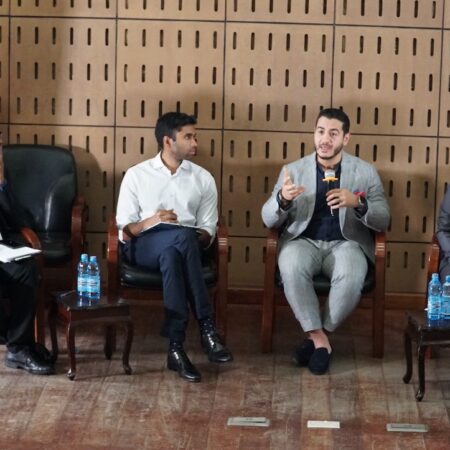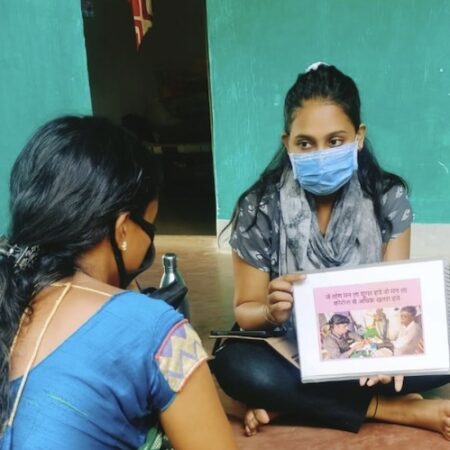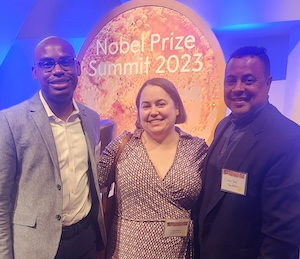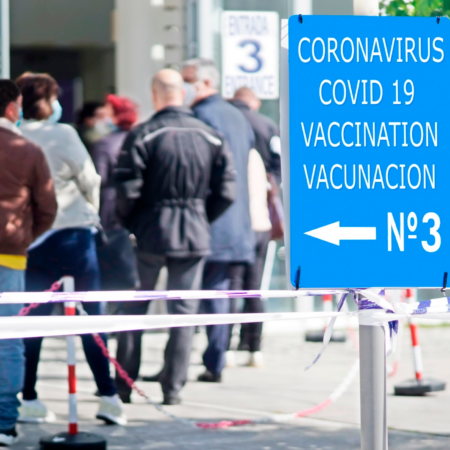Mercury Project Findings: Intention2Action
A Mercury Project team examined whether SMS-based interventions that are backed by behavioral research insights and aimed at increasing Covid-19 booster rates translate to real-world outcomes.
This work was recently published in Nature Human Behaviour and is part of our Mercury Project Findings series on SMS-based Interventions.
Read More
Mercury Project Findings: Boosting Boosters at Scale
A Mercury Project team conducted a mega-study to assess the effects of offering a free ride to vaccination sites and SMS reminders on vaccine booster uptake rates, targeting over 3 million CVS Pharmacy patients with texts crafted by an interdisciplinary team of behavioral scientists, including economists, psychologists, and physicians.
This work was recently published in Nature and is part of our Mercury Project Findings series on SMS-based Interventions.
Read More
Mercury Project Findings: SMS-based Interventions
Over the course of the past three years, the Social Science Research Council’s Mercury Project has supported 18 research teams around the globe in evaluating interventions designed to increase vaccination and other evidence-based health behaviors. We are excited to now present the many policy-relevant and actionable insights from their projects.
This month, we share the findings of Boosting Boosters at Scale and Intention2Action, two Mercury Project teams that used SMS-based interventions to encourage Americans to get Covid-19 boosters.
From Lego Pieces to Public Health Interventions: Actionable Reflections from the Mercury Project Solutions Summit
On October 3 – 4, 2024, the Mercury Project, together with the University of Nairobi’s Institute for Development Studies, welcomed leaders from the public, private, and philanthropic communities to the Mercury Project Solutions Summit. Abdul El-Sayed, doctor, epidemiologist, and director of the Wayne County, Michigan, Department of Health, Human, and Veterans Services, reflects on what he learned about how researchers and policymakers can work together to develop and implement evidence to improve well-being.
Read More
Mercury Project Solutions Summit
The Mercury Project, together with the University of Nairobi’s Institute for Development Studies, welcomes leaders from the public, private, and philanthropic communities to the Mercury Project Solutions Summit in Nairobi from October 3-4. We welcome colleagues from around the world to join us online for the opening plenary, at which representatives from the research, policy, and philanthropic communities will frame both the challenges and the opportunities for evidence-based strategies that build robust vaccine demand chains and support science-based health decision-making.
Read More
Measuring Susceptibility to Misinformation in Lower-Income Populations
In this post, SSRC Mercury Project researchers Anwesha Bhattacharya (Harvard Kennedy School), Erik Jorgensen (Inclusion Economics at Yale University), Urvi Naik (Inclusion Economics India Centre), and Charity Troyer Moore (Inclusion Economics at Yale University) discuss the challenges to pursuing research on susceptibility to inaccurate information in lower-income populations.
Read More
The “Invisible Benefits” of the Mercury Project Research Consortium
In this essay, Rutgers University professor Charles Senteio describes how his research has been enhanced by the “invisible benefits” of participation in the SSRC’s global Mercury Project research consortium. He illustrates how funders’ choices in structuring collaborative work–within and across teams–create value beyond the direct funding of research projects, enabling new ideas and collaborations that wouldn’t have otherwise happened.
Read More
Everyone, Everywhere, All at Once: Strengthening Demand Chains for Equitable Vaccination
As Gavi, the Vaccine Alliance announces its next five-year strategy, the SSRC’s Mercury Project explains the importance of building robust and science-informed vaccine demand chains to complement vaccine supply chains.
Read More
Seven Tips from Experts on Communicating Your Research
To build researchers' communications skills, the Mercury Project recently organized two convenings featuring Ann Searight Christiano, director of the University of Florida’s Center for Public Interest Communications, and Estelle Willie, director of Health Policy and Communications at The Rockefeller Foundation. These sessions imparted valuable lessons on effective research communication.
Read More
Scaling Vaccine Demand Solutions
The Mercury Project’s 18-team global research consortium is preparing to report findings and launch the next phase of its work. At an upcoming Solutions Summit in Nairobi, researchers and global health policy leaders will identify the most promising interventions to increase vaccine demand from the Mercury Project’s first phase of work, and will develop master protocol blueprints to evaluate those interventions across multiple diverse settings.
Read More

